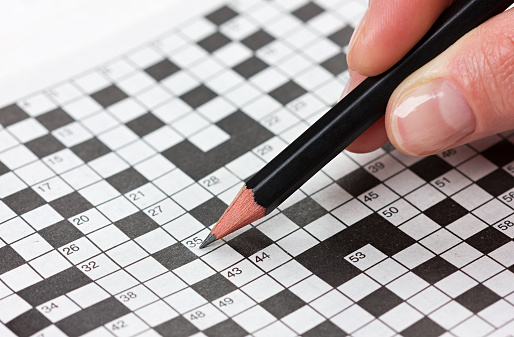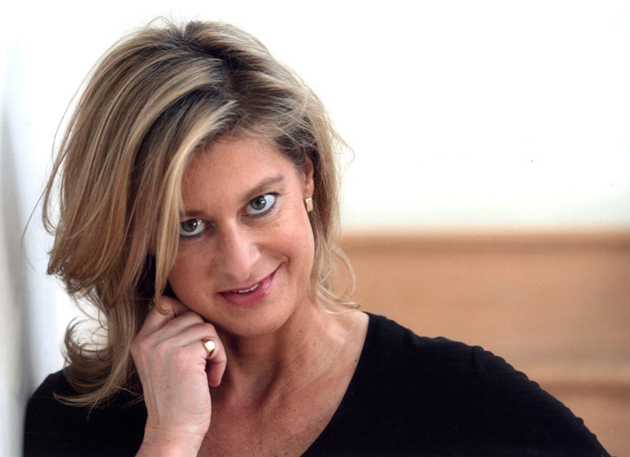Label: media
Friday 16th September 2016Does Defacing an Artwork Create a Copyright? It's more or less an open secret that the legal system's understanding of the nature of art is deeply flawed. Of course, both sides of the argument tend to believe it's flawed in the other direction, as in the case of the work of Richard Prince that we've covered extensively here in the past.
It's more or less an open secret that the legal system's understanding of the nature of art is deeply flawed. Of course, both sides of the argument tend to believe it's flawed in the other direction, as in the case of the work of Richard Prince that we've covered extensively here in the past.
What makes a collaborative work of art? Does a remix constitute copyright infringement or creative license? It's the quintessential question of the postmodern world - and even if you think we're living in the post-postmodern world, the legal system still hasn't really caught up.
But regardless of how carefully you've been following these struggles over the years, you probably never expected that a 90 year old woman from Germany would be at the centre of the debate.
The woman, whose name was reported as Hannelore K. by German authorities, was visiting the Neues Museum in Nuremberg and stopped to admire a piece by 20th century avante-garde artist Arthur Kopcke. The piece, apparently entitled "Reading-work piece" (probably a terrible translation from the German, apologies that we can't find the proper name), features a blank crossword grid. Beside the piece is a sign in English that says 'Insert Words'.
So that's exactly what she did. She began to fill in the crossword puzzle squares, and managed quite a few before museum officials stopped her and called the police.
She was released after briefly being questioned by the police, but the story doesn't end there. While that alone would probably be enough for the basis of an article, the really juicy bit comes in the form of her response.
She's suing the museum for removing her additions to the artwork, claiming that she has a new copyright on the collaborative result of her tweaks to the piece. Whether this is her opinion or the suggestion of her lawyer remains to be seen, but it's a story that strikes straight to the heart of the question of the nature of media and art.
Interestingly enough, the Fluxus school which Kopcke was a member of during his career, doesn't seem to support the museum's decision to "restore" the work. As Ars Technica quoted The Art Story:
"Fluxus artists did not agree with the authority of museums to determine the value of art, nor did they believe that one must be educated to view and understand a piece of art."
Posted on September 16th 2016 on 06:41pm
0 Comments
Friday 10th April 2015Artist Spotlight: Alison Jackson
It's hardly any secret that modern society is completely obsessed with celebrity. It's impossible to browse the net or even stand in line at the grocery store without being constantly bombarded with the latest gossip about who did what to whom, now with 5 extra hours of analysis and speculation. It's frenetic and never-ceasing, and completely and utterly unavoidable. Enter Alison Jackson, a prominent photographer whose entire body of work is based on (you guessed it!) celebrities. Perhaps more accurately, however, her work is about our obsession with them.
Jackson's work, which has been prominently featured in England and around the world since the late 90s, creates fake paparazzi photos using celebrity lookalikes. So carefully and meticulously created, they regularly fool the celebrity-obsessed hordes, and that has only become even more prevalent thanks to the rapid-fire sharing that happens online, usually with little-to-no fact checking or even basic attempts at locating the image source.
Speaking to Complex magazine, Jackson said, "I’m fascinated by how people get so emotional and so involved in celebrities when they haven’t ever met them. There’s no close relationship, it’s purely a mediated one, and it runs as an industry. The publicists run it, they make money out of it, the celebrities get a fantastic lifestyle from being famous, the magazines and the TV shows make a lot of money from it, and everyone aspires to it."
Jackson's work originally caught the public imagination with faked photos of Princess Diana and Dodi Al-Fayed, and their supposed baby, but has since gained serious steam, as she won a prestigious BAFTA award for her work on the BBC2 comedy series Doubletake, based on similar principles to her own still image work.
Still speaking to Leigh Silver of Complex, she said, "We're used to seeing celebrities as two-dimensional images on the Internet, in magazines, or on television, so when the public sees the photograph, it doesn’t really matter whether it’s the real person or not. The celebrity can be replaced, and I suppose that’s what I am doing with my photography and film."
An excellent point, and one that will constantly need to be made until we finally have a meaningful dialog about media literacy, self-awareness and the value of our own lives when compared to the idealized perception of a stranger's life we've never even encountered. Take a look at more of the works of Alison Jackson at her website,
alisonjackson.com.
Posted on April 10th 2015 on 05:42pm
0 Comments
Friday 27th June 2014Going Beyond Your Medium

The search for fresh inspiration never ends. It's an inevitable and undeniably enjoyable part of living your life as an artist that the entire world can speak to you and inspire you to create. But as we all know, that doesn't make it true 100% of the time. We all have our little slow-downs, so we've explored various ways to fight the creative doldrums over the past few months, and many of these tactics can lift you back up out of a slump. What we're going to look at today, though, is more about how you think about yourself as an artist.
For many of us, we have specialized or gravitated towards a specific discipline, be it photography, sculpture, music, performance art, painting or whatever. But many - perhaps I should even say most - of us have become inadvertently locked into our chosen discipline, and that can sometimes make it extremely difficult to break free from creative slumps. We establish modes and patterns of thinking within our respective disciplines, and sometimes we can't see our own ways out as a result. But what happens when you put down the paintbrush and pick up a camera? Ditch the dance shoes for a collage construction? Wonderful and exciting things, if you go into it with the right attitude.
The key is to stop thinking of yourself as a painter, or a photographer, or whatever your discipline may be. Even if you'd only like to switch out your watercolours for acrylics or oils, even small changes in your habits can have huge impacts on the way you interact with your own work. Don't expect to produce masterpieces right away in a brand-new medium (although don't be too surprised if you do - art is full of happy accidents!), but try to understand the creative process from other perspectives and with other approaches.
Similar to the way that learning a new language or teaching yourself a musical instrument can keep your brain sharp and on its toes, the act of switching media can really break you out of an artistic slump and get your creative neurons firing at full capacity again. Who knows, you might even discover a passion for a style that you'd otherwise never have experimented with! Try to pick something that's always interested you but you've never experimented with before - this is your excuse (or kick in the behind!) to get out there creatively and let your passion through!
Posted on June 27th 2014 on 06:35pm
0 Comments
 It's more or less an open secret that the legal system's understanding of the nature of art is deeply flawed. Of course, both sides of the argument tend to believe it's flawed in the other direction, as in the case of the work of Richard Prince that we've covered extensively here in the past.
It's more or less an open secret that the legal system's understanding of the nature of art is deeply flawed. Of course, both sides of the argument tend to believe it's flawed in the other direction, as in the case of the work of Richard Prince that we've covered extensively here in the past.
 It's hardly any secret that modern society is completely obsessed with celebrity. It's impossible to browse the net or even stand in line at the grocery store without being constantly bombarded with the latest gossip about who did what to whom, now with 5 extra hours of analysis and speculation. It's frenetic and never-ceasing, and completely and utterly unavoidable. Enter Alison Jackson, a prominent photographer whose entire body of work is based on (you guessed it!) celebrities. Perhaps more accurately, however, her work is about our obsession with them.
It's hardly any secret that modern society is completely obsessed with celebrity. It's impossible to browse the net or even stand in line at the grocery store without being constantly bombarded with the latest gossip about who did what to whom, now with 5 extra hours of analysis and speculation. It's frenetic and never-ceasing, and completely and utterly unavoidable. Enter Alison Jackson, a prominent photographer whose entire body of work is based on (you guessed it!) celebrities. Perhaps more accurately, however, her work is about our obsession with them. The search for fresh inspiration never ends. It's an inevitable and undeniably enjoyable part of living your life as an artist that the entire world can speak to you and inspire you to create. But as we all know, that doesn't make it true 100% of the time. We all have our little slow-downs, so we've explored various ways to fight the creative doldrums over the past few months, and many of these tactics can lift you back up out of a slump. What we're going to look at today, though, is more about how you think about yourself as an artist.
The search for fresh inspiration never ends. It's an inevitable and undeniably enjoyable part of living your life as an artist that the entire world can speak to you and inspire you to create. But as we all know, that doesn't make it true 100% of the time. We all have our little slow-downs, so we've explored various ways to fight the creative doldrums over the past few months, and many of these tactics can lift you back up out of a slump. What we're going to look at today, though, is more about how you think about yourself as an artist.



